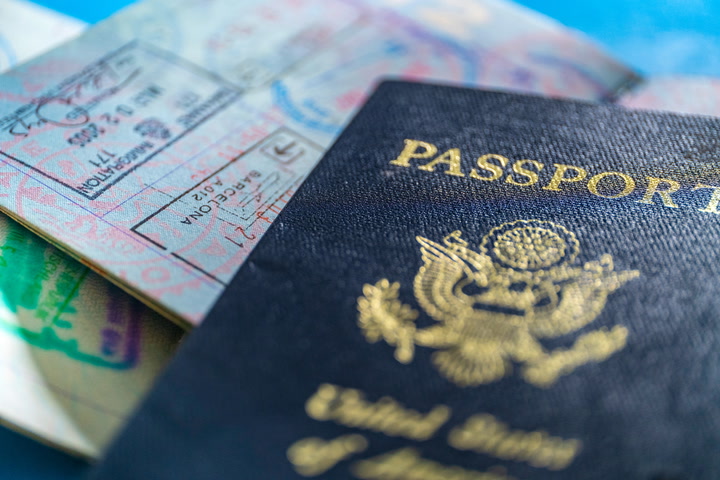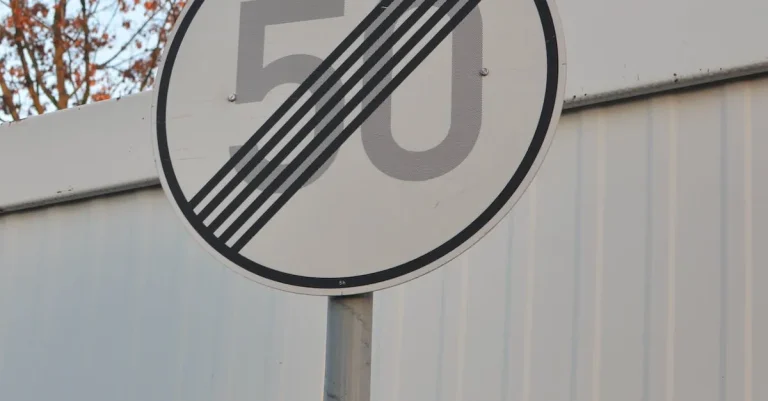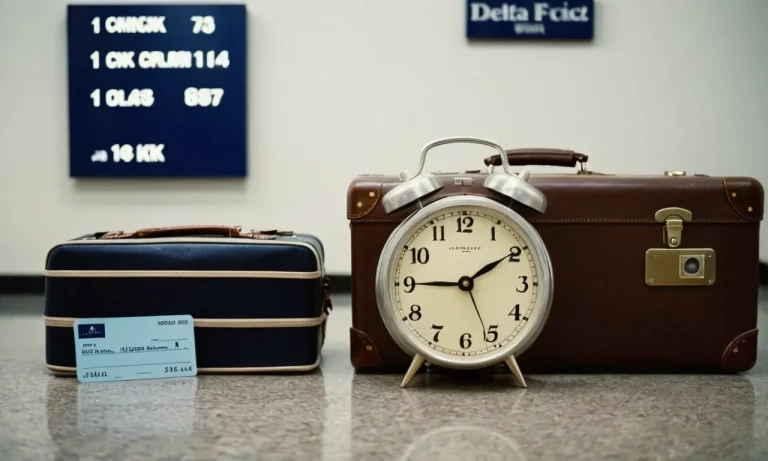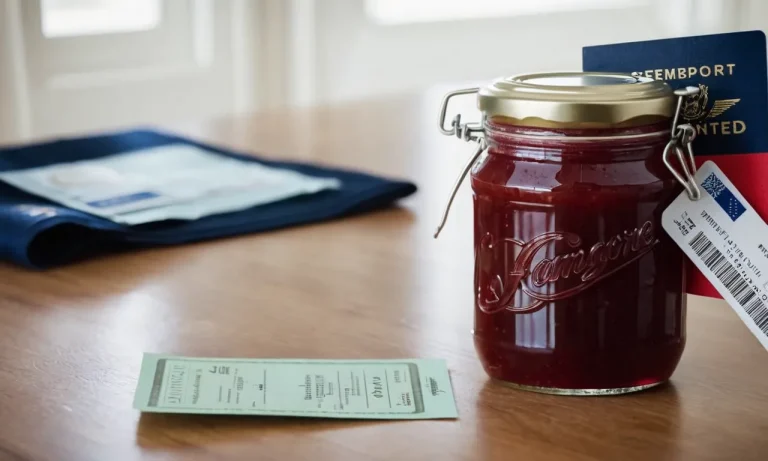Having a different place of birth listed on your passport versus your birth certificate is a common situation that many people find themselves in.
With international travel on the rise, passports are becoming an essential document, and having an accurate place of birth is crucial.
If you’re in a time crunch, here’s the quick answer:
Any discrepancies should be fixed by applying for a passport correction.
In this comprehensive guide, we’ll cover everything you need to know about having different places of birth on your passport and birth certificate.
You’ll learn the common reasons for the discrepancy, whether it’s problematic, how to fix it, and tips for avoiding issues when traveling.
Why Place of Birth Might Differ on Documents
When it comes to official documents such as passports and birth certificates, it is not uncommon for the place of birth to be different.
This discrepancy can occur due to various reasons, including:
Name changes
In some cases, individuals may have changed their names after their birth. This can occur due to marriage, personal preference, or cultural reasons.
When updating their passports, individuals may choose to include their new name, which might not match the place of birth stated on their birth certificate.
Adoptions
Adopted individuals may have their place of birth listed as the location of their adoptive parents rather than their actual place of birth.
This is because the legal process of adoption often involves changing the child’s birth certificate to reflect their new family.
As a result, the place of birth on their passport may differ from their original birth certificate.
Errors in documentation
Human error is also a common reason for the discrepancy in the place of birth between documents. Mistakes can be made during the registration of a birth or when processing passport applications.
These errors can lead to differences in the recorded place of birth, causing inconsistencies between the birth certificate and passport.
Dual citizenship
People with dual citizenship may have different place of birth listed on their documents based on the country of their citizenship.
For example, if someone was born in one country but acquired citizenship in another, their passport from the second country may list their place of birth as their country of citizenship rather than their actual place of birth.
It is important to note that these variations in the place of birth on official documents do not invalidate the documents themselves.
They are simply a reflection of the different circumstances and legal processes that can occur throughout a person’s life.
Is it a Problem?
Having your place of birth listed differently on your passport compared to your birth certificate can potentially cause a few issues.
Let’s take a closer look at some of the possible problems:
Travel issues
If the place of birth on your passport is different from what is stated on your birth certificate, it could lead to confusion and delays when traveling internationally.
Immigration officials may question the discrepancy and require additional documentation to verify your identity and citizenship.
This can be particularly troublesome if you are traveling to a country with strict entry requirements.
Proof of citizenship concerns
Your birth certificate is often used as a primary document to prove your citizenship.
If the place of birth on your passport is not consistent with your birth certificate, it may raise doubts about your citizenship status.
This can become a problem when applying for certain benefits or when dealing with government agencies that require proof of citizenship.
Difficulty obtaining other documents
Having a discrepancy between your passport and birth certificate can complicate the process of obtaining other important documents, such as a driver’s license or social security card.
These documents often require proof of identity and citizenship, and inconsistencies between your passport and birth certificate may lead to additional scrutiny and delays in obtaining them.
It is important to ensure that the information on your passport matches the details on your birth certificate to avoid potential problems.
If you discover any discrepancies, it is advisable to contact the appropriate authorities to rectify the issue as soon as possible.

Fixing a Place of Birth Discrepancy
Having a discrepancy between the place of birth on your passport and your birth certificate can cause several issues when traveling or dealing with official documents.
However, there are ways to rectify this situation and ensure that your identification documents accurately reflect your place of birth.
Here are some steps you can take to fix a place of birth discrepancy:
Getting a passport correction
If you have discovered an error in the place of birth listed on your passport, the first step is to contact the passport office or embassy in your country.
They will provide you with the necessary forms and instructions to correct the mistake.
It is important to provide documentary evidence, such as your birth certificate, to support your claim.
The process may involve submitting an application, paying a fee, and providing any additional documentation required.
Once your application is processed, you will receive a corrected passport reflecting the accurate place of birth.
Amending birth certificate
If the discrepancy lies in your birth certificate rather than your passport, you will need to contact the vital records office or the department of health in the state or country where you were born.
They will guide you through the process of amending your birth certificate.
This usually involves completing an application, providing supporting documents, and paying a fee.
Common supporting documents include affidavits from individuals who can attest to your place of birth, hospital records, or any other relevant evidence.
Once your application is approved, you will receive an amended birth certificate with the correct place of birth.
Special cases
In some cases, fixing a place of birth discrepancy may be more complex.
This can occur if you were born in a foreign country with different naming conventions or if your birthplace has undergone significant geographical changes.
In such situations, it is advisable to seek legal advice or consult with a professional familiar with immigration or passport matters.
They can assist you in navigating the specific requirements and processes involved in resolving the discrepancy.
Remember, it is crucial to address any discrepancies between your passport and birth certificate promptly.
Failing to do so can lead to complications when traveling, applying for visas, or dealing with official documents.
By following the appropriate steps and providing the necessary documentation, you can ensure that your identification documents accurately reflect your place of birth.
Tips for Traveling with Place of Birth Discrepancies
Bring both documents
When your place of birth on your passport is different from your birth certificate, it is important to bring both documents when you travel.
This will help avoid any confusion or potential issues at immigration checkpoints.
By presenting both documents, you can provide authorities with the necessary information to verify your identity and travel history.
It’s also a good idea to make copies of both documents and keep them in a separate location, in case the originals are lost or stolen during your trip.
Having duplicates can save you from a lot of unnecessary stress and hassle.
Have supplemental ID available
In addition to bringing both your passport and birth certificate, it is recommended to have supplemental identification available.
This can include a driver’s license, national ID card, or any other government-issued identification that supports your identity and confirms your place of birth.
Having supplemental ID can serve as a backup in case there are any further questions or doubts about your place of birth.
It demonstrates that you have multiple forms of identification that can be used to verify your identity.
Know entry/exit requirements
Before traveling to any country, it is essential to research and understand the entry and exit requirements specific to that destination.
Some countries may have stricter regulations regarding discrepancies between place of birth on your passport and birth certificate.
By being aware of these requirements beforehand, you can prepare accordingly and avoid any potential issues or delays.
It’s always better to be well-informed and prepared to ensure a smooth and hassle-free travel experience.
Remember, discrepancies between the place of birth on your passport and birth certificate are not uncommon.
As long as you have the necessary documentation and follow the tips mentioned above, you should be able to travel without any major complications. Safe travels!
Conclusion
Having different places of birth listed on your passport and birth certificate can happen for a number of reasons.
While it’s ideal to have consistency across documents, it doesn’t necessarily preclude you from traveling internationally.
With some preparation and by fixing any errors ahead of time, you can avoid major issues.
Just be sure to research entry requirements, bring all relevant documents, and double check all paperwork prior to any trips abroad.






